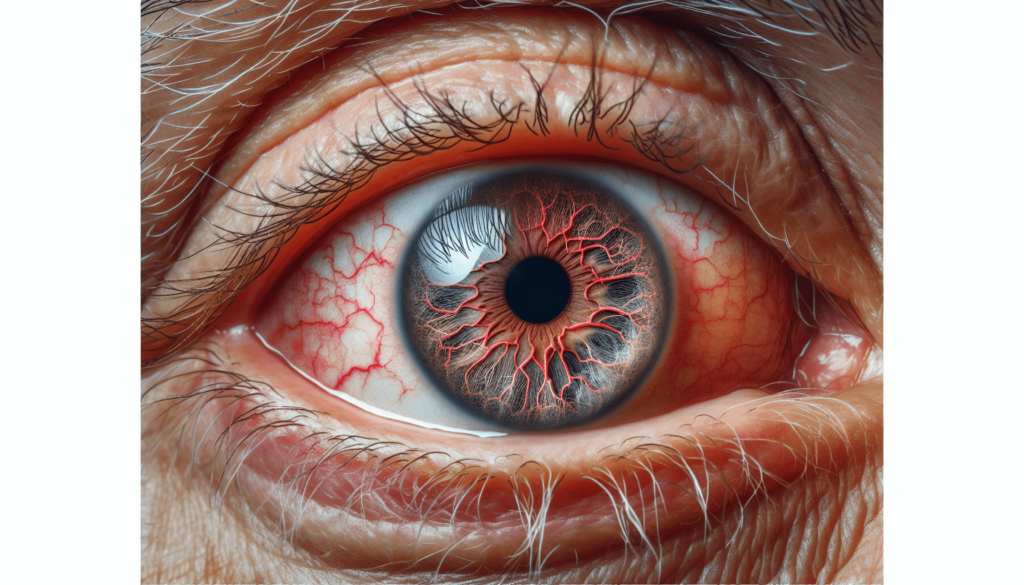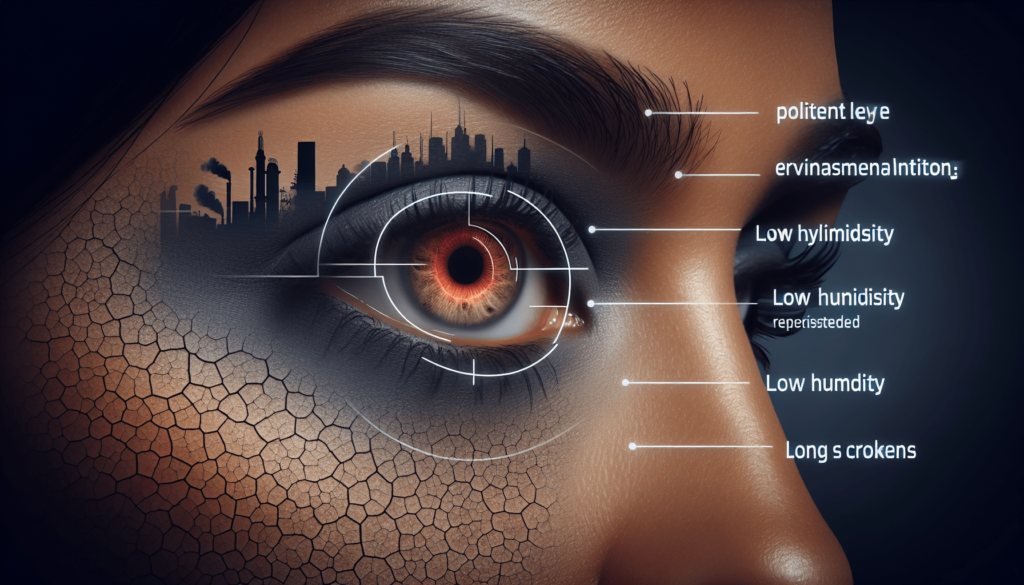Welcome to an informative article on the connection between Meibomian gland dysfunction and dry eyes. Meibomian gland dysfunction occurs when the oil-producing glands in your eyelids become blocked or dysfunctional, leading to poor tear quality and evaporative dry eye. Understanding this relationship can help you better manage and treat your dry eye symptoms. Let’s dive into the details of how Meibomian gland dysfunction contributes to dry eyes and what you can do to find relief.
How Does Meibomian Gland Dysfunction Relate To Dry Eyes?
Have you ever experienced the discomfort of dry eyes? One of the main contributors to this condition is Meibomian gland dysfunction. But what exactly is Meibomian gland dysfunction and how does it relate to dry eyes? Let’s break it down for you.
What Are Meibomian Glands?
Before we delve into Meibomian gland dysfunction, let’s first understand what these glands are. Meibomian glands are small oil-producing glands located in the eyelids. Their main function is to secrete oil that helps keep the surface of the eye lubricated and prevents tears from evaporating too quickly.
What Is Meibomian Gland Dysfunction?
Meibomian gland dysfunction occurs when these glands become blocked or do not function properly. This can result in a decreased or altered oil secretion, leading to an imbalance in the tear film of the eye. Without the proper amount of oil, tears evaporate too quickly, causing the eyes to become dry and irritated.
Symptoms of Meibomian Gland Dysfunction
The symptoms of Meibomian gland dysfunction often mimic those of dry eye syndrome. Some common symptoms include:
- Dryness
- Irritation
- Grittiness
- Redness
- Blurry vision
If you are experiencing any of these symptoms, it is important to see an eye care professional for a proper diagnosis.
Causes of Meibomian Gland Dysfunction
There are several factors that can contribute to the development of Meibomian gland dysfunction. Some common causes include:
- Aging
- Hormonal changes
- Environmental factors (such as dry air or wind)
- Certain medications
- Medical conditions (such as rosacea or autoimmune diseases)
Understanding the underlying cause of Meibomian gland dysfunction is crucial in determining the most effective treatment plan.
How Meibomian Gland Dysfunction Leads to Dry Eyes
Meibomian gland dysfunction plays a key role in the development of dry eyes. When these glands do not produce enough oil or the quality of the oil is compromised, the tears on the surface of the eye are unable to spread evenly and evaporate too quickly. This results in dryness, irritation, and discomfort.
The Tear Film and Its Importance
The tear film is a thin layer of fluid that covers the surface of the eye. It is made up of three layers: oil, water, and mucus. Each layer has a specific function in keeping the eye moist and lubricated. When there is a deficiency in the oil layer, as is the case with Meibomian gland dysfunction, the tear film becomes unstable, leading to dry eyes.
Effects of Meibomian Gland Dysfunction on the Eye
In addition to causing dryness and discomfort, Meibomian gland dysfunction can have other effects on the eye. These include:
- Inflammation: Blocked Meibomian glands can become inflamed, leading to further discomfort and irritation.
- Blurry Vision: Dry eyes can cause vision to become blurry, especially when blinking or focusing for extended periods.
Diagnosing Meibomian Gland Dysfunction
If you suspect that you may have Meibomian gland dysfunction, it is important to seek a professional diagnosis. Your eye care provider may perform a variety of tests to assess the health of your Meibomian glands, such as:
- Meibography: This imaging technique allows your eye care provider to visualize the structure of your Meibomian glands.
- Tear Film Assessment: Your provider may measure the quantity and quality of your tears to determine if Meibomian gland dysfunction is the culprit.
- Symptom Assessment: A discussion of your symptoms and medical history can also help in diagnosing Meibomian gland dysfunction.
Once a diagnosis is made, you can work with your eye care provider to develop a treatment plan that addresses your specific needs.
Treatment Options for Meibomian Gland Dysfunction
Luckily, there are several treatment options available for managing Meibomian gland dysfunction and dry eyes. Some common treatments include:
- Warm Compresses: Applying a warm compress to the eyes can help soften the oil in the Meibomian glands, making it easier to express.
- Lid Massage: Gentle massage of the eyelids can help to clear blocked Meibomian glands and promote the flow of oil.
- Lid Hygiene: Keeping the eyelids clean and free of debris can help prevent blockages in the Meibomian glands.
- Topical Medications: In some cases, your eye care provider may prescribe topical medications to reduce inflammation or improve the quality of the oil in the Meibomian glands.
It is important to work closely with your eye care provider to determine the most effective treatment plan for your specific condition.
Preventing Meibomian Gland Dysfunction
While Meibomian gland dysfunction is a common condition, there are steps you can take to prevent it from occurring or worsening. Some preventive measures include:
- Hydrate: Staying hydrated can help maintain the production of tears and oil in the Meibomian glands.
- Blink Regularly: Taking regular breaks to blink can help to spread tears evenly across the surface of the eye.
- Protect Your Eyes: Wearing sunglasses or protective eyewear can shield your eyes from environmental factors that can contribute to Meibomian gland dysfunction.
By incorporating these habits into your daily routine, you can help keep your Meibomian glands healthy and functioning properly.
Conclusion
In conclusion, Meibomian gland dysfunction is a common condition that can lead to dry eyes and discomfort. By understanding the causes, symptoms, and treatment options for this condition, you can take proactive steps to maintain the health of your Meibomian glands and prevent dry eyes. Remember to consult with your eye care provider if you experience any symptoms of Meibomian gland dysfunction to receive a proper diagnosis and treatment plan.



